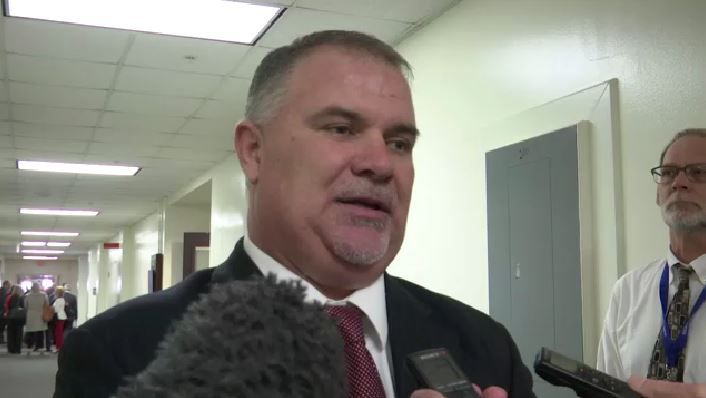FRANKFORT- The nation's highest paid Chief Information Officer could be getting a pay cut.
Lawmakers unanimously passed House bill 499 out of a House committee this morning--and put the bill on the consent calender.
The bill would cut the salary of the CIO to be comparable with Kentucky's contiguous states.
Right now--Charles Grindle is making $375,000 for his position as the Chief Information Officer at the Commonwealth Office of Technology, almost double than the highest paid CIO in states surrounding Kentucky.
Bill sponsor Rep. John "Bam" Carney, R-Campbellsville, says it's important to retain the best talent--it's also important to be prudent with taxpayer dollars.
"In the past we've had budget language to allow other cabinets to do similar things, most of those cabinets, I think two positions were in economic development, and those come in at $250,000," he said. "A lot of constituents expressed concern about how high that salary was so we filed this legislation. Certainly as it moves forward, if it moves forward in the Senate, I'm willing to have discussions aboout raising some of that options because I acknowledge to get the best you got to pay the best."
If passed--this bill would cut his salary in almost half. Taking a look at the surrounding states, Tennessee's CIO is the highest paid making $200,112. Virginia is next with their CIO making $189,263, the closest position in Illinois makes $172, 800. Then you see a sharp drop in the rest of the states, with Ohio's CIO making $134,368, West Virginia's making $133,428, and Indiana's making $131,402. Missouri's CIO is the lowest paid making $110,000 annually.
If passed the bill would go into effect the start of the next fiscal year and would only be for that year, as lawmakers will craft a new budget for the 2020 to 2022 biennium.
Grindle is a long time friend of Governor Matt Bevin dating back to their time in the army together--but Rep. Carney says he hasn't spoken to the governor about this bill but doesn't think the administration will take it personal.
"It's not necessarily a hit at the governor. This is an issue that deals with one particular job that I feel like taxpayers are paying more than they necessarily need to," he said. "I'm not saying we don't have to pay more than people around us, even though the bill states that, to attract that talent. I'm open to that discussion but this is purely policy based on what is best for taxpayers and constituents and others."
The bill was placed on the consent calender so it could pass with no floor debate, but the fate in the Senate is unknown.



